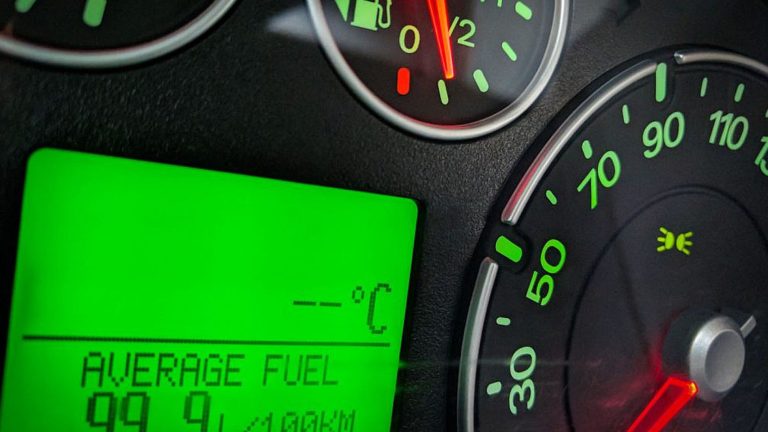What Fuel Quality Means for Vehicle Performance?
Introduction
One important yet often overlooked aspect of vehicle performance and maintenance is fuel quality. It covers several qualities of the fuel that directly influence engine performance, power output, and general vehicle lifetime. This thorough article investigates the complex link between fuel quality and vehicle performance, therefore clarifying why the type of fuel you use counts and how it might affect the running of your car.
The Basics of Fuel Quality
Fuel quality is the composition and features of the fuel, along with its purity, additives, and chemical qualities. Premium fuel is devoid of impurities that can damage the engine and purified to satisfy particular criteria. Key markers of fuel quality include its octane rating, cetane number, and additive presence meant to improve performance and engine protection. If you have an Audi A3 exhaust system, instead of wasting it, sell it on a selling website and earn money.
Octane Rating: The Key to Engine Performance
fuel’s octane grade gauges its pre-ignition or knock resistance. Higher octane fuels resist more compression before they ignite. Particularly in high-performance or turbocharged engines built to run under higher compression, using a fuel with a higher octane rating than what your engine requires can increase performance and economy.
Effortless Ways to Sell Your Scrap Car
Cetane Number: Diesel Fuel’s Equivalent to Octane Rating
The corresponding measurement of octane rating in fuel for diesel engines is the cetane number. It tells how easily the fuel ignites under compression. Better combustion quality indicated by a greater cetane number results in smoother engine running, higher fuel economy, and lower pollutants.
Significance of Fuel Quality for Vehicle Performance?
The Effects on Engine Efficiency
Better engine performance results from more effective combustion made possible by premium fuel. Proper additive clean-burning fuels assist to preserve ideal combustion temperatures and pressures, therefore improving engine performance and power production. Conversely, bad-quality or polluted fuel could cause incomplete combustion, therefore lowering power and efficiency.
Maintaining engine efficiency and performance depends much on fuel additives. They comprise lubricants that lower friction, cleaners of the fuel system, and stabilizers that stop oxidation. By guaranteeing the engine operates smoothly and effectively, premium fuels with the correct additives can assist to increase fuel efficiency. On the other hand, fuels devoid of appropriate additives could cause lower mileage and higher fuel usage.
Impact on Engine Longevity and Maintenance
By lowering deposits and hence lowering the chance of pre-ignition or knocking, high-quality fuel helps save wear and tear on engine components. Premium fuels’ detergents and cleaning chemicals assist to maintain the combustion chambers and fuel system clean, therefore reducing the accumulation of dangerous deposits. This then increases the lifetime of engine components and lessens their demand for regular maintenance.
Low-quality or contaminated fuel could cause a number of engine problems including carbon buildup, blocked fuel injectors, and more engine knocking. These issues could cause expensive repairs and less dependability of the vehicle. Good fuels with appropriate additives provide cleaner combustion and improved general engine performance, therefore helping to avoid such problems.
The Role of Fuel Quality in Emissions and Environmental Impact
Emission levels directly relate to fuel quality. Lower emissions of pollutants like carbon monoxide, nitrogen oxides, and hydrocarbons follow from high-quality fuels burning more cleanly. Enhanced additives in premium fuels can also assist automobiles lower their environmental impact and satisfy more stringent emission criteria.
Strong rules on fuel quality and emissions abound in many areas. Using premium fuels that either meet or surpass these criteria will assist to guarantee local rule compliance and support general environmental preservation. Reduced emissions from premium fuels help to provide better surroundings and cleaner air.
Choosing the Right Fuel for Your Vehicle
Consult the owner’s handbook for your vehicle for fuel recommendations always. Manufacturers indicate the cetane number or octane rating best for performance. Fuel that satisfies these criteria guarantees the car runs effectively and helps to preserve engine performance and lifetime.
Buy from recognized gas stations and stay away from fuel from outlets known for fluctuating quality to prevent using inferior fuel. Should you believe there is fuel contamination or problems, you should take quick action by emptying the fuel tank and substituting premium fuel.
Economic Considerations of Fuel Quality
Although premium fuels may cost more, their advantages in terms of enhanced engine performance, greater fuel efficiency, and lower maintenance expenses can exceed their initial outlay. Analyzing the long-term savings and performance improvement helps one decide whether the extra expense is warranted.
Furthermore, improving the resale value of your car is using premium fuel. Potential purchasers usually find well-kept engines with less problems more appealing; evidence of utilizing premium fuels might be a selling feature.
Conclusion
Fuel quality is a crucial element affecting the performance, economy, and lifetime of your car; it is not only a specification. From engine maintenance and environmental effects to combustion efficiency and power output, the quality of fuel you pick greatly influences the general running of your car. Understanding the value of fuel quality and making wise decisions can help you to make sure your car runs as it should, runs effectively, and stays dependable for many years to come.






